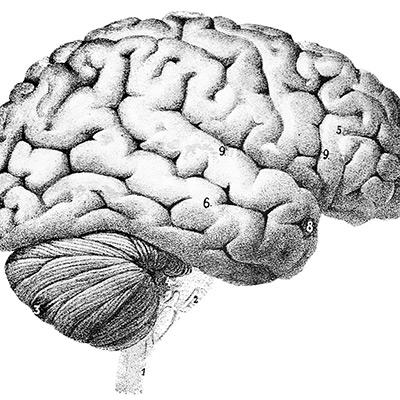Cognitive Science is an interdisciplinary field that studies the fundamental workings of cognition and the mind. It investigates perception, action, language, knowledge, development, and thinking from multiple perspectives—theoretical, experimental, and computational—with the aim of gaining a better understanding of human cognition and the nature of intelligent systems. The nature of mental representations and their acquisition and use are important themes, as are the comparison between human and artificial intelligence, and the relation between human cognition and its biological foundations.
The major will make it possible for students to cultivate unique interests within cognitive science by allowing them to create novel course combinations that transcend the typical departmental boundaries.
Requirements
Majors are required to take three core courses that provide introductions to cognitive science and relevant methods, as well as a selection of upper-level courses that provide interdisciplinary breadth and depth within the field. Students have the opportunity to participate in lab/field/independent study and complete an honors thesis. The major requires 40 credits, comprising of at least 12 courses. All courses must be taken for a letter grade. Students must earn a grade of C- or better to count a course toward the major. No more than 50% of courses applied to a non-Cognitive Science major/minor may be used to fulfill the Cognitive Science major requirements.
Introductory Core (2 courses):
- COGST 1101 – Introduction to Cognitive Science (cross-listed) OR
- COGST 2350 – How the Brain Makes the Mind
Statistical Reasoning (select one):
- BTRY 3010 - Biological Statistics I (crosslisted)
- PSYCH 2500 - Statistics and Research Design
- SOC 3010 - Statistics for Sociological Research
- STSCI 2150 - Introductory Statistics for Biology
- STSCI 2200 - Biological Statistics I (crosslisted)
Structured Thinking/Data Science (select one)
- CS 1380 - Data Science for All (crosslisted)
- COGST 2310 - Introduction to Deductive Logic (crosslisted)
- INFO 2950 – Introduction to Data Science
Interdisciplinary Distribution Concentrations (3 courses):
Students must take at least one course from three of five concentrations below to ensure interdisciplinary breadth. A course can only be counted once for the interdisciplinary distribution requirement. Additional courses can be taken within a single concentration for the purpose of in-depth study. [In addition, select specialized courses may be counted toward the major based on the academic advisor's approval.]
Sample classes
The following are examples of courses one can take toward each concentration. For additional courses, see the full Cognitive Science course offerings list.
Language Science
The Language Science concentration covers the interdisciplinary approach to language, drawing on linguistics, psycholinguistics, computational linguistics, developmental science and philosophy to provide a broad perspective on the unique human ability for language.
• COGST 2150 - Psychology of Language (crosslisted)
• COGST 2264 - [Language, Mind, and Brain] (crosslisted)
• COGST 3330 - [Problems in Semantics] (crosslisted)
• COGST 4240 - Computational Linguistics I (crosslisted)
• COGST 4270 - Evolution of Language (crosslisted)
• COGST 4280 - [Computational Psycholinguistics] (crosslisted)
• COGST 4425 - Pragmatics (crosslisted)
• COGST 4740 - Natural Language Processing (crosslisted)
Evolution and Development
The Evolution and Development concentration allows students to study the emergence of behavior across ontogenetic and phylogenetic timescales, and how these may interact (so-called evo-devo).
• COGST 2090 - Developmental Psychology (crosslisted)
• COGST 2300 - Cognitive Development (crosslisted)
• COGST 4260 - Cognitive Behavioral Ecology (crosslisted)
• COGST 4270 - Evolution of Language (crosslisted)
Computational Cognitive Science
The Computational Cognitive Science concentration focuses on the role of computation, broadly construed, in explaining and understanding cognition and the mind.
• COGST 3140 - Computational Psychology (crosslisted)
• COGST 3300 - [Introduction to Computational Neuroscience] (crosslisted)
• COGST 3801 - Introduction to Game Theory and Strategic Thinking (crosslisted)
• COGST 4240 - Computational Linguistics I (crosslisted)
• COGST 4280 - [Computational Psycholinguistics] (crosslisted)
• COGST 4740 - Natural Language Processing (crosslisted)
Cognitive Neuroscience
The Cognitive Neuroscience concentration explores the insights offered by neurobiological approaches to understanding how the mind works.
• COGST 2230 - Intro to Behavioral Neuroscience (crosslisted)
• COGST 2264 - [Language, Mind, and Brain] (crosslisted)
• COGST 3250 - Neurochemistry of Human Behavior (crosslisted)
• COGST 3300 - [Introduction to Computational Neuroscience] (crosslisted)
• COGST 4230 - Navigation, Memory, and Context: What Does the Hippocampus Do? (crosslisted)
Mind and Culture
The Mind and Culture concentration aims to understand cognition in the context of its fundamental embedding in culture, drawing on insights from the humanities and social sciences.
• COGST 1112 - Change-making: Designing Healthy & Hospitable Environments•
• COGST 2621 - [Minds and Machines] (crosslisted)
• COGST 3160 - Auditory Perception: The Music Lab (crosslisted)
• COGST 3420 - Human Perception: Application to Computer Graphics, Art, and Visual Display (crosslisted)
• COGST 4050 - [Judgment and Decision Making] (crosslisted)
• COGST 4150 - [Culture, Cognition, Humanities] (crosslisted)
• COGST 4310 - Topics in Cognitive Science (crosslisted)
• COGST 4625 - [Topics in Philosophy of Mind] (crosslisted)
